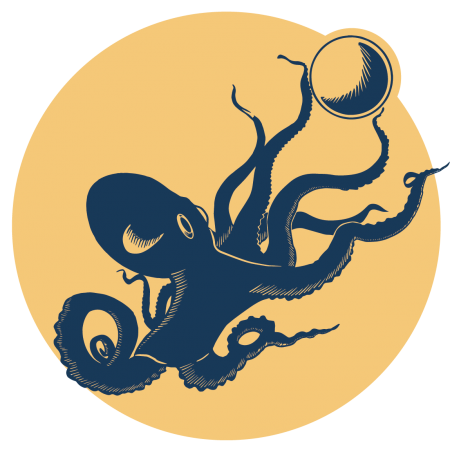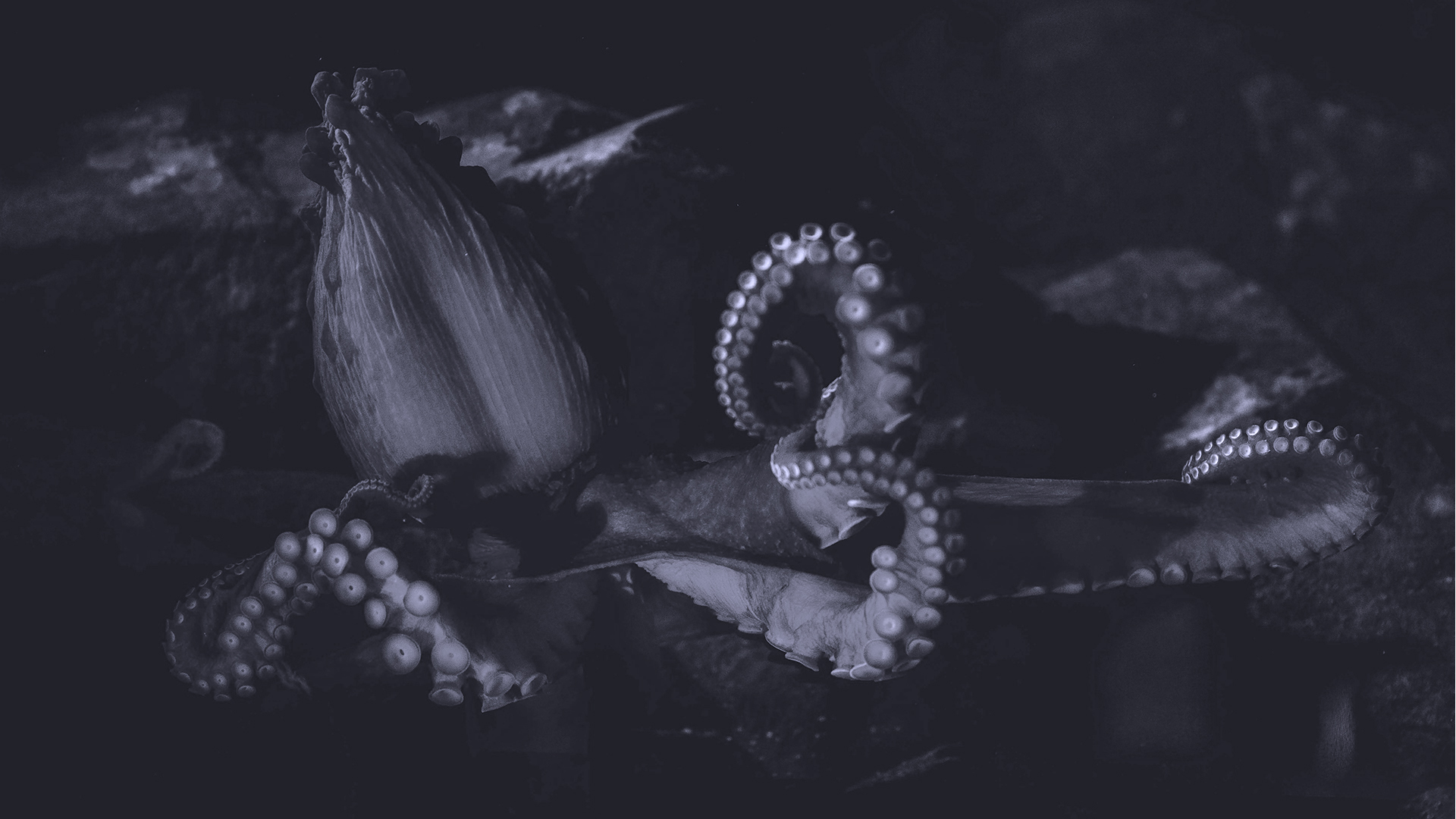by Padmapani L. Perez, Fara Manuel-Nolasco, Marjorie Evasco, and Renato Redentor Constantino
Octavia is a challenge to habits of the mind, a cipher to purposeful acts. She is an impish cue to realization: we still have a world to win.
We hold on to our beginnings even as the agenda evolves: agam, which connotes a memory of the past and the ability to think, and agam-agam, for foreboding, doubt, and uncertainty. At the same time, we find ourselves ready to explore new depths of understanding and insight as we look beyond the Philippines.
A representation of agam and uncertainty in Baybayin calligraphy defined the scope, purpose, and the very cover of Agam: Filipino Narratives on Uncertainty and Climate Change. And rightly so, as the image was meant to convey the complexity of the enterprise. But uncertainty itself is an animate being, an ever-evolving thing that molts and grows limbs transforming scars and skin into celestial things. Which is just as well, because it’s time for a new symbol as we look to cross new boundaries—in Asia, Africa, the Pacific and Latin America, and as we discover more ways to enable collaboration between the humanities and science.
The octopus is our icon of choice for an Agam Agenda. The creature is an embodiment of agam and our complex embrace of the uncertain future. In our team we call her Octavia.1The name is partly a nod to the novelist Octavia Butler, considered one of the world’s greatest science fiction writers. Butler is a black woman novelist who wrote about time travel and slavery in the U.S., covering intergalactic, inter-generational genetic trade between humans and aliens that were rather octopus-like. Her writings point to the spring of human troubles: hierarchy.

Symbols are important; they tell stories.
Aside from its aesthetic and metaphoric elements, a symbol renders wearable to its wielder the history, values, qualities, and ambitions it embodies. From an anthropological perspective, to choose, select, or create a symbol is an act of meaning-making. When a symbol is interpreted, accepted, and used by communities, it becomes social currency. Its deployment is an assertion of human agency and, often, power as well. Semiotically, it is a signal offered for others to “read”. In many cultures, myths, and rituals, symbols are signposts for fellow humans and other species, including unseen elements and the magical, more-than-human.
Confronting the most serious existential threat humankind has ever faced, we continue to deploy language distended with human conceit, clumsy, and rigid in its silos. Such language is completely inadequate to the need to inspire new ideas, alliances, provocations, and the task of bolstering a sense of agency equal to the scale of challenges we confront today. Octavia is thus a symbol of our enterprise, conveying attributes our discourse lacks or that we’ve forgotten to employ, and which we’re encouraged to consider.
We connect our work to Octavia’s qualities. We aspire to reflect her attributes.
The animal
As a living being, the octopus is amazing. Octopus have 300 million neurons mostly located in their tendrils, which is probably why their limbs can carry out different tasks simultaneously.
She is a shape-shifter, color-changer, ink-maker, problem-solver, and a heavy-lifter. For example, if all the suckers of a Giant Pacific Octopus had a diameter of 6.35 centimeters, then she would have a combined sucker force of 25,400 kilograms. In captivity she is a curious mischief-maker and escape artist.
She can taste and see with her skin. Studies suggest she can sense emotions in contact with humans. One species has two brains and three hearts.
As metaphors are rhizomic, we see Octavia as kin to all the earth gods and goddesses who are imagined with multiple hands and breasts. Perhaps the most magical of her qualities is the fact that she can detach and regrow her arms at will, extending all her limbs with the curiosity and playfulness of a wild child tasting the world’s goodness and bitterness. She regenerates all the gradations and nuances of taste known to the sentient tongue, establishing a sense of restoration where one of our strongest hopes for the environment resides: a restoration at all levels, from the material to the metaphysical.
As a symbol, the octopus is multi-faceted. She evokes fluidity, adaptability, grace, mystery, ambiguity, and intelligence. She flows and reaches out. She is coiled yet she is a spear and helical.
Choosing an animal as our symbol does not take away from the human focus of Agam. With Octavia we join a strand of transdisciplinary studies, which recognizes that animals are part of human society.
We need to question the conceit of our certainties—that we can continue without consequences to live large off the back of what sustains us and the toil of so many.
Anti-bogey
Due largely to the notion that as a species we are above everything else, humans tend to transfer fears, inadequacies, and excesses to other species who would probably find human acts of greed unequivocally monstrous. Like sharks in pop culture, we associate symbolic attributes of the octopus, for instance, with villainy, evil, predation, and danger.
An octopus can make people uneasy. Stories abound of horrific encounters with giant octopus going back to the 1800s. There have been many eight-limbed villains in movies and cartoons. Yet today we see a growing number of reports from scientists, photographers, and naturalists of seemingly odd moments of connection and endearment in human-octopus encounters. As instances of such encounters increase, a realization slowly sets in and we wonder if we should really still call these “moments”.
People recoil from an octopus’s touch (which does not sting). We find such reactions no different from the initial response triggered by invitations to embrace uncertainty: it’s rarely easy. We may understand the precariousness of chance intellectually, but we are constantly challenged in practice. Yet not knowing is simply a condition. To the curious, there is an entire web of reason to untangle, which lies just outside illuminated space.
Uncertainty is an opportunity, a reminder that instead of trepidation, we should feel elated. We need to understand that its opposite, knowing, is not defined by premeditated conclusions. We need to question the conceit of our certainties—that we can continue without consequences to live large off the back of what sustains us and the toil of so many.
Octavia is a challenge to habits of the mind, a cipher to purposeful acts. She is an impish cue to realization: we still have a world to win.
